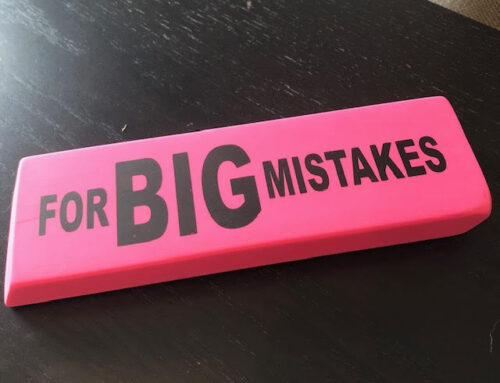I admit I was overreaching. After all, I was only two years into my career. But there I was, meeting with the company president and asking him to sponsor me for an Executive MBA, at a cost of approximately $100,000. I had put together a compelling proposal (or so I thought) and managed to get through three levels of management before this meeting. Needless to say, I was pretty determined to make this happen and keen to get approved.
He said no. This was not the feedback I wanted to hear.
Yet, ironically, I can still picture myself leaving the meeting smiling and content. I dare say we were even laughing a bit. How was this possible? Clearly, the best leaders are skilled at delivering feedback.
Feedback is a skill worth mastering by all of us and is a crucial component of any high-performance team. Sharing feedback is the fastest way to help people learn new skills and uncover blind spots. Teams with frequent, strengths-based feedback are more productive and engaged. These teams also have a better sense of how to work together. After all, how else would they share opinions and perspectives?
The trouble is, feedback is rarely something we want to hear.
The word “feedback” is often associated with a gut-wrenching, “Uh oh, what went wrong?” feeling. Feedback often sounds like criticism; the brutal truth; the bitter medicine we hate to swallow.
Let’s face it – feedback has a terrible reputation. Isn’t it time feedback received a rebrand?
Related video: Why is giving feedback so important?
Let’s explore what good great feedback sounds like.
Great feedback has three elements in common: it is valued, productive and enriching.
Valued
Unlike negative feedback, great feedback is well-received. The person sharing the feedback wraps up the conversation with the intent to have the other person feeling better after the conversation. The feedback provider also checks in with the recipient before sharing feedback. Are they in the right head-space to value hearing some suggestions?
Note that great feedback doesn’t always have to be positive. The vast majority of people welcome corrective feedback, as long as it is coming from someone they trust and someone who has offered them a lot of positive feedback in the past. High-performance teams hit a ratio of roughly 6:1 for strengths to constructive feedback.
Reflecting back on my MBA request, Mike, the company president, made sure to highlight my value to the company despite the clear no to my request. He made it clear the lack of expense approval was more of a budgetary limitation than a personal decision.
Productive
Great feedback is focused on skill development. It does not dwell on what went wrong in the past. Rather, it is future-oriented and focused on what we can do better moving forward. Great feedback is grounded in the intent to develop and enhance rather than blame or penalize. Great feedback is an ongoing, natural and accepted process on a high-functioning team.
While Mike denied my request, he kept the discussion empowering. He highlighted other opportunities including part-time study options and future career paths. He focused on what the company could offer, rather than what they couldn’t.
Enriching
Great feedback strengthens both skills and relationships. The best leaders strive to build relationships with every interaction. They seek to understand where the other person is coming from before sharing feedback. They offer support and encouragement. They provide guidance to help refine skills and approaches. And consistently, they share feedback in a respectful way.
Back to my “feedback” discussion with Mike, a great leader lays the foundation for meaningful conversations before a conversation takes place. This was no doubt why I felt comfortable enough to make the request in the first place. As a strong leader to this day, Mike consistently invests time in people, with an emphasis on catching people doing things right. He works to build trust and goodwill which helps to mitigate the tougher conversations.
Related blog: 15 golden rules of constructive feedback
Are you ready to invest the time?
Few people are willing to invest the time and effort to make for rich feedback discussions. It’s much easier to simply move on, leaving the job of feedback to someone else. But as a leader, feedback is our obligation, not an option.
“Before you are a leader, success is about growing yourself. When you become a leader, success is about growing others.” – Jack Welch
Have you had the luxury of learning about feedback from a pro like Mike? If so, what made those feedback conversations so powerful? Conversely, what is the worst feedback conversation you’ve ever witnessed? Thanks in advance for sharing. There is always something to learn from less-than-ideal situations. But please don’t mention any names. ;)
Ready to give feedback a rebrand? Learn more in our Fearless Feedback online course.







Leave A Comment